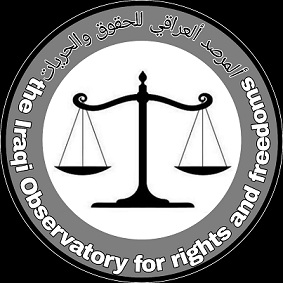
تواطؤ القضاء العراقي مع الجماعات الدينية المسلحة التابعة لإيران
في السنوات الأخيرة، برز دور القضاء العراقي في إثارة جدل واسع حول مدى تواطئه مع الجماعات المسلحة المرتبطة بإيران، خاصة في ما يتعلق بتعاملاته مع تلك الجماعات التي تنفذ هجمات ضد المصالح الأجنبية أو ترتكب مجازر ضد الطائفة السنية. يعزز هذا التواطؤ ما يُشاع عن تحكم الجماعات المسلحة، مثل “الحشد الشعبي” والفصائل الأخرى المدعومة من إيران، في مفاصل الدولة العراقية بما في ذلك القضاء.
من أبرز الأمثلة على هذا التواطؤ هو تصرفات القاضي فائق زيدان، رئيس مجلس القضاء الأعلى، الذي يُتهم بتسهيل الإفراج عن عناصر من تلك الجماعات المسلحة الذين ارتكبوا جرائم واضحة بحق المدنيين والمصالح الدولية في العراق. إحدى القضايا المثيرة للجدل كانت الإفراج عن أفراد مسؤولين عن هجمات على المعسكرات الأجنبية، حيث اعتبر القضاء أن تلك الهجمات ليست “جريمة” بموجب القانون العراقي. هذا الموقف أثار غضباً واسعاً بين أوساط المعارضة والدوائر الدولية التي ترى في ذلك تشجيعاً ضمنياً لتلك الهجمات وزيادة الخطر على التواجد الدولي في البلاد.
من ناحية أخرى، تم توثيق حالات عديدة من عدم إصدار مذكرات قبض ضد أفراد من الجماعات المسلحة الذين ارتكبوا مجازر بحق المدنيين، لا سيما من الطائفة السنية. ورغم توفر أدلة وشهادات واضحة حول تلك الجرائم، إلا أن القضاء العراقي لم يتحرك بالشكل المطلوب، مما يعزز الشكوك حول وجود تأثيرات خارجية، وتحديداً من إيران، على عمل القضاء.
يعد هذا الوضع من بين الأسباب الرئيسية التي أدت إلى تفاقم الصراع الطائفي في العراق وزيادة الانقسامات المجتمعية، حيث يشعر جزء كبير من المجتمع بأن القانون لا يُطبق بشكل عادل وأن القضاء متواطئ مع طرف معين على حساب الآخرين. وقد أضعف هذا الثقة بمؤسسات الدولة العراقية، وأدى إلى تعميق الأزمات السياسية والأمنية في البلاد
The Collusion of the Iraqi Judiciary with Iran-Backed Armed Religious Groups
In recent years, the role of the Iraqi judiciary has sparked widespread controversy over its alleged collusion with armed groups affiliated with Iran, particularly in its handling of those groups that carry out attacks against foreign interests or commit massacres against the Sunni sect. This collusion has been bolstered by claims that armed factions like “Al-Hashd Al-Shaabi” (Popular Mobilization Forces) and other Iran-backed militias have infiltrated key sectors of the Iraqi state, including the judiciary.
One of the most prominent examples of this collusion is the actions of Judge Faiq Zidan, head of the Iraqi Supreme Judicial Council, who has been accused of facilitating the release of members of these armed groups who have committed clear crimes against civilians and international interests in Iraq. One controversial case involved the release of individuals responsible for attacks on foreign military bases, where the judiciary ruled that such attacks were not considered “crimes” under Iraqi law. This stance has sparked outrage among opposition circles and international communities, who view it as implicit encouragement for such attacks and a growing threat to foreign presence in the country.
Moreover, there have been numerous documented cases where arrest warrants were not issued against members of armed groups responsible for massacres against civilians, particularly from the Sunni sect. Despite the availability of clear evidence and testimonies regarding these crimes, the Iraqi judiciary has failed to take appropriate action, further fueling suspicions of external influences—especially from Iran—over the judiciary’s decisions.
This situation is among the main reasons that have exacerbated sectarian conflict in Iraq and deepened societal divisions, as a significant portion of the population feels that the law is not applied impartially and that the judiciary is complicit with one side at the expense of others. This has weakened trust in Iraqi state institutions and has contributed to the country’s worsening political and security crises.



